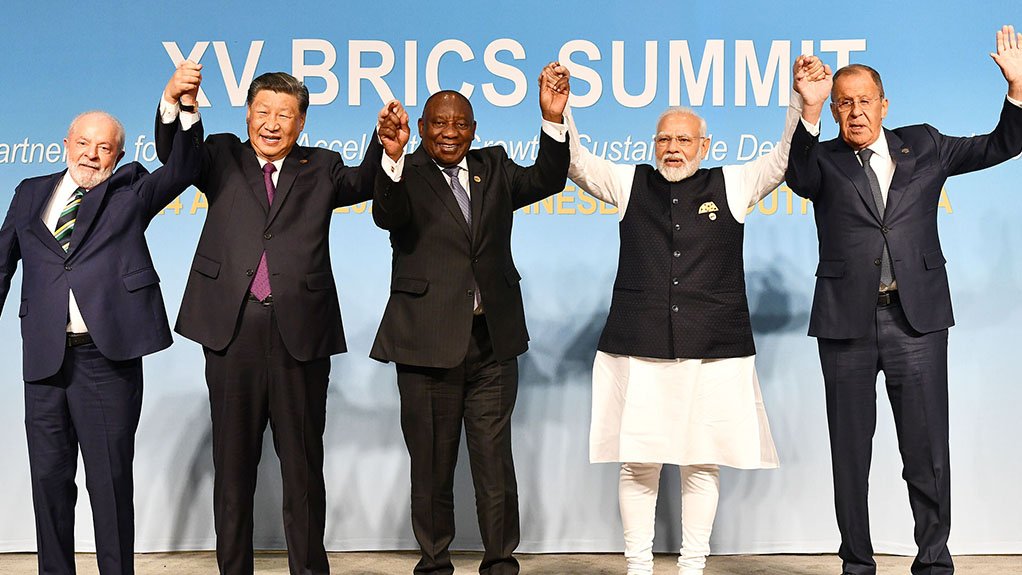As the COP28 talks wrapped up in Dubai, one of the world’s energy heavyweights said it wants to rally a united front among a group of non-Western economies when confronting global climate issues.
Russia’s “task is to combine efforts and common approaches in the Eurasian space and in the Brazil, Russia, India, China, and South Africa (Brics) space” when it comes to the climate agenda, First Deputy Economy Minister Ilya Torosov said in an interview Tuesday at the COP28 conference.
The Brics countries, which are seeking to be an alternative to the Group of Seven and up until this year were comprised of Brazil, Russia, India, China and South Africa, will be joined by Saudi Arabia, the United Arab Emirates (UAE), Iran, Ethiopia and Egypt in 2024. Russia will chair the Brics group next year.
As part of its responsibilities, Russia plans to organize a contact group on climate issues, Torosov said. He insisted that even with sanctions imposed on Russia and an economy increasingly reoriented eastward away from the European Union, the country hasn’t abandoned the climate agenda.
“We view decarbonisation as a driver of economic growth,” he said.
The US and its allies have imposed a raft of sanctions on Russia and sought to isolate the country on the international stage after the Kremlin’s February 2022 invasion of Ukraine. The restrictions have targeted a wide array of economic activity, ranging from cutting banks off from the SWIFT international payment system to choking off imports of high-tech equipment.
Despite that, Russia remains a top oil and gas exporter and an important member of OPEC+, the alliance between the Organisation of Petroleum Exporting Countries and other major oil producers. Russia also ranks among the largest suppliers of nuclear fuel.
Russia aims to increase the use of renewable energy sources by 2030, Torosov said. Hydroelectric and nuclear power plants, as well as natural gas, will remain part of the mix as Moscow seeks to reduce the share of coal it uses to power the country.
As part of that effort, Russia will create its own climate monitoring service focused on the oceans, permafrost, desertification and carbon absorption, he said, adding that 40 scientific organisations are currently working to launch it. Russia also intends to spend 10-billion rubles ($111.6-million) on scientific development.
The COP28 talks, hosted by the UAE, ended in an historic deal that committed the world to a transition away from all fossil fuels for the first time. The final agreement calls for countries to quickly shift energy systems away from the polluting fuel in a just and orderly fashion, qualifications that helped convince the skeptics. Countries also are called to contribute to a global transition effort — rather than being outright compelled to make that shift on their own.
Russia is satisfied with the results of this year’s climate talks, Torosov said. Moscow also welcomes the fact that the next climate summit will be held in Azerbaijan, another major oil producer and a part of the OPEC+ coalition.
EMAIL THIS ARTICLE SAVE THIS ARTICLE
To subscribe email subscriptions@creamermedia.co.za or click here
To advertise email advertising@creamermedia.co.za or click here











